Maggie Gyllenhaal Isn't Here To Provide Easy #MeToo Sound Bites

“This is a movie about a woman who’s driven mad by the culture she finds herself in, who isn’t heard, who is starving and who wakes up to it. What could be more current?”
Maggie Gyllenhaal is talking about “The Kindergarten Teacher,” in which she plays ― wouldn’t you know it ― a kindergarten teacher who floats through her days numbed by a lack of artistic fulfillment and her quotidian family routines. The film premiered at Sundance last week, part of a particularly female-driven lineup that was underscored by the Time’s Up movement’s presence throughout the festival. Conversations concern #MeToo and women’s rights reverberated across Park City, Utah, on screen and off.
Though “The Kindergarten Teacher,” directed and written by Sara Colangelo, does not deal with sexual misconduct, Gyllenhaal was quick to fasten the movie to the broader reckoning that women, in Hollywood and beyond, have launched following studio mogul Harvey Weinstein’s fall from grace. Like her character in the film, these women refuse to glide by, silencing themselves to placate the world at large.
And yet Gyllenhaal was just as quick to express hesitancy about becoming a mouthpiece asked to produce topical sound bites that the internet can pick apart. As more men are accused of harassment and assault, and as the cultural conversation becomes louder and more intricate, Gyllenhaal seems to have turned a cautious eye toward the pithy discourse demanded of famous women probed about sensitive subjects.
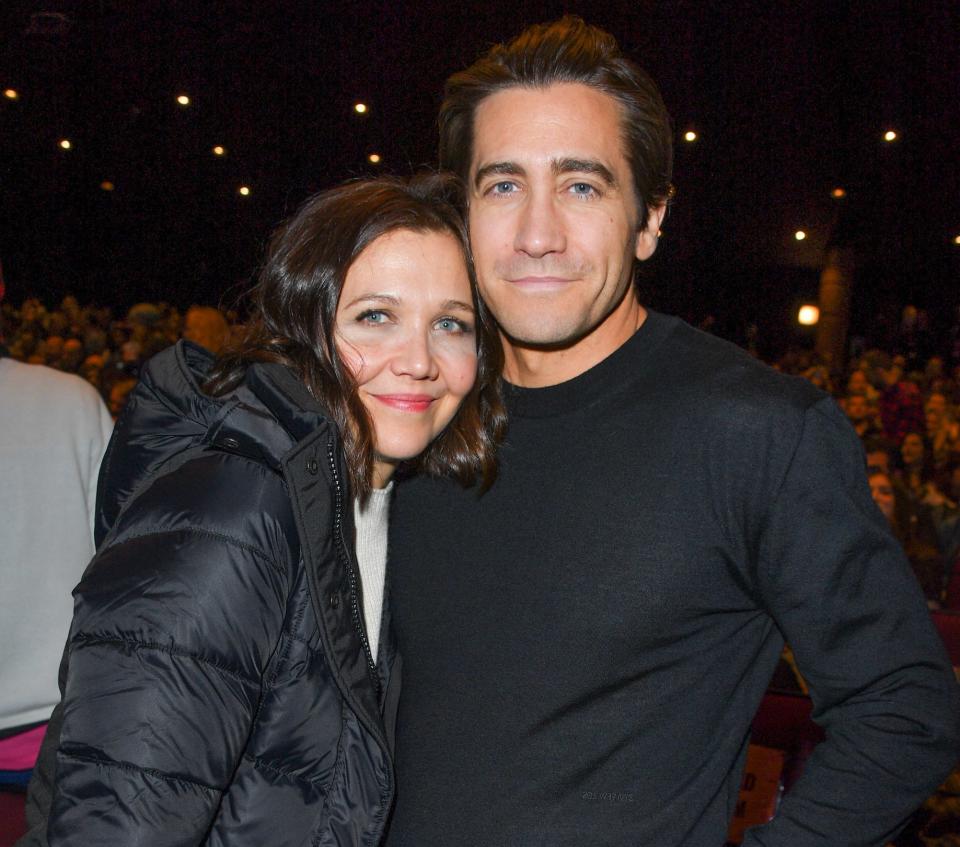
“I have come to feel, over the past week — well, over the past few months — I’ve come to be really clear about the fact that this is the very beginning of something, and I am really in the process of processing it, of thinking about it,” she told HuffPost.
“I’ve had incredibly interesting, private conversations with my friends and with my colleagues. Obviously this is an issue that is very important to me. But my thinking about it and my thoughts about it are very complicated and nuanced, and I don’t think that, in this moment, a 20-minute interview, and maybe in particular a red carpet, for me, is the place to have the conversation.”
Even if she’s a politically minded celebrity whose Twitter presence largely espouses liberal stances on health care, immigration and gun control, Gyllenhaal thinks veering into discussions about sexual misconduct during an interview, ostensibly meant to promote her latest artistic endeavor, can be a “detour.”
And it’s not hard to buy what she’s saying when quotes are so frequently decontextualized to fit a headline or misappropriated to stoke social media outrage.
Reflecting on her platform at Hollywood’s current crossroads, Gyllenhaal pointed to a theme that connects her work: characters “driven crazy by the insanity of the culture,” who awaken with a jolt prompted by some external force touching their lives. She cited “Secretary,” “Sherrybaby,” “Crazy Heart,” “The Honorable Woman” and “The Deuce” as examples of the archetype. In “The Kindergarten Teacher,” that external force is one of her 5-year-old students. She believes him to be a poetry prodigy, and her desire to help him realize his talents borders on the obsessive, perhaps even the predatory. She turns him into an art project.
“Here, in this post-Trump world, you meet a woman like that, and she has all that need and all of that hunger, but the things she grabs on to — the roads she takes to wake up — are really confused and really wrong,” Gyllenhaal said.
The night before I met Gyllenhaal, she’d declined to answer Marie Claire’s questions about James Franco, her costar from “The Deuce,” whom five women have accused of harassment. Celebrities being asked to comment on their costars’ alleged transgressions is a damned-if-you-do, damned-if-you-don’t scenario, especially as #MeToo becomes more of a national talking point.
“Now, the nuances, the gray areas, the complications are things that I am literally thinking about and talking about all the time,” she told me. “It’s on all of my most interesting friends’ minds all the time. I’m sure it’s the same for you. But it’s going to take more time for me, more thinking for me, more reading, more considering. I don’t know that a short interview is ever going to be the place to have the conversation, for me.”
Instead, Gyllenhaal sees this moment as an opportunity to commend advocates of the Time’s Up legal defense fund. She wasn’t one of the organization’s founding members, but having been at the Golden Globes when most attendees dressed in black to express solidarity, Gyllenhaal applauded the power of a female-driven union. “Actresses who are often in contact only when they’re being pitted against each other [are] coming together,” she said.
“There are other things I can say, like a woman should decide whether or not she wants to have a child,” Gyllenhaal continued. “That’s really easy for me. I can say, ‘I support Planned Parenthood.’ I can say many, many things like that — it’s not that I don’t want to mix politics with myself as a public figure or myself as an artist. But I also really do feel like this movie that I made is a poetic expression of some of my politics about [this movement]. It speaks better for me than I can speak right now in an interview with you. And that’s a gift. To be able to say that about the work you have, what a gift.”
Bonus: Here’s a snippet of Maggie Gyllenhaal and Martha Wainright performing The Magnetic Fields’ “Papa Was a Rodeo” at a Sundance party.
Maggie Gyllenhaal! Martha Wainwright! pic.twitter.com/q9GgwK0wvD
— Matt Jacobs (@tarantallegra) January 21, 2018
Related Coverage
'The Tale,' A Visionary Portrait Of Childhood Sexual Abuse, Is 2018's First Great Movie
Chloë Sevigny’s Lizzie Borden Biopic Isn’t The Ax Murderer Movie She Originally Imagined
This Year's 6 Best Sundance Movies, Plus A Few Performances We'll Be Talking About
Also on HuffPost
"Sorry to Bother You"
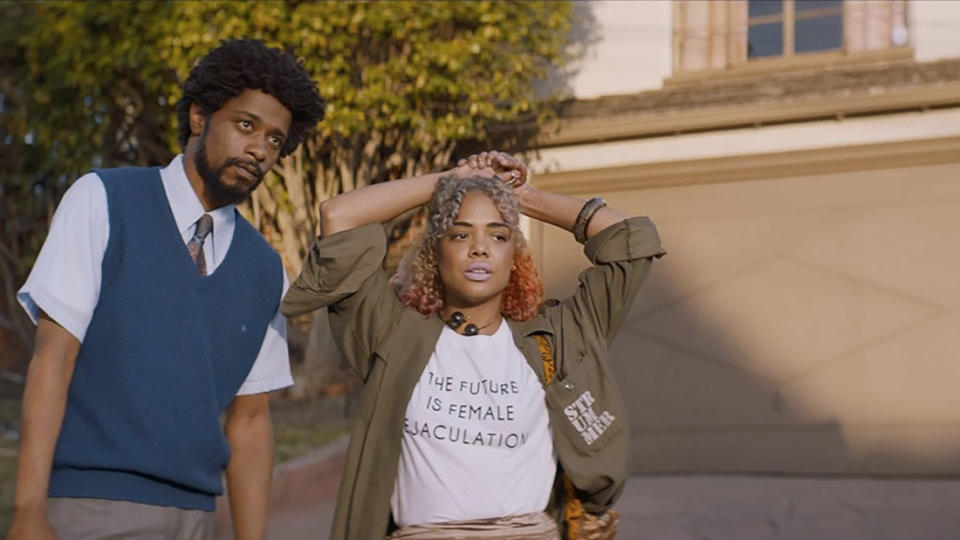
With a character name like Cassius Green, an artist-activist girlfriend played by Tessa Thompson (just wait till you see her statement earrings) and a coke-guzzling boss (Armie Hammer!) who demands Cassius freestyle at a party, Stanfield and writer-director Boots Riley have conceived a character torn between wokeness, economic gain and a very human urge to keep the peace. But as events grow increasingly bizarre -- have you ever seen a horse-man penis? -- the movie also finds a soulfulness, resonating ever more strongly as it threatens to fly off the rails. Merrill Garbus of Tune-Yards fame wrote the score, so imagine an effervescent joyride in which corporate greed, racist stereotypes and palatial orgies make cameos. -- Matthew Jacobs
"The Miseducation of Cameron Post"
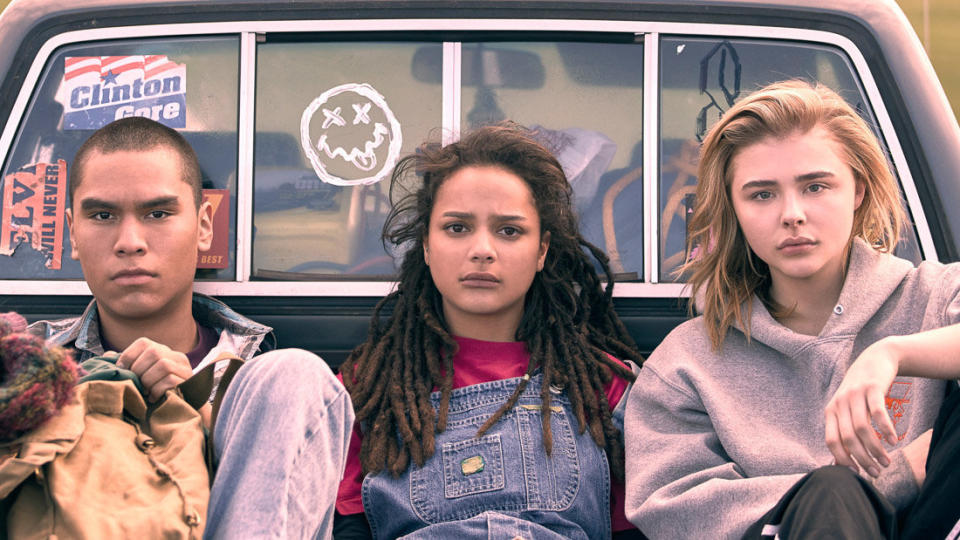
As Cameron meets her fellow "disciples," including Jane Fonda (Sasha Lane) and Adam (Forrest Goodluck), she comes to realize she's not the only one who understands that what they're being pressured to do is anything but normal. Tackling fear and confusion with laugh-out-loud humor, this coming-of-age film celebrates its characters' individualities while showing the horrors of facilities that try to manipulate young men and women into changing who they are -- facilities that are unfortunately still legal in 41 states. -- Leigh Blickley
"The Tale"
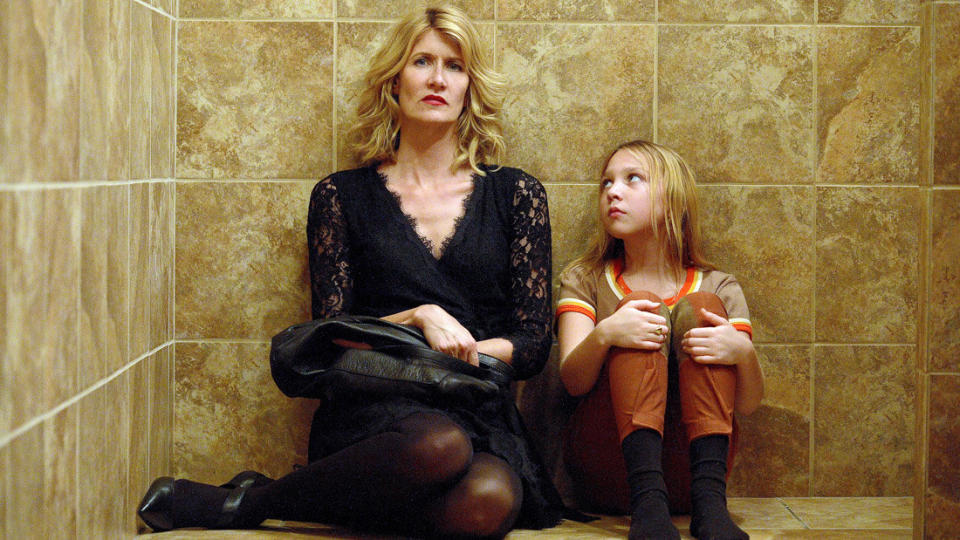
Writer-director Jennifer Fox turns her own experiences into a meta narrative about a woman who, as a young girl, was hungry for the affection her parents denied her. Storytelling at its most adept and sophisticated, "The Tale" uses fiction conceits to depict trauma from the vantage of someone seeking the truth about her own biography. It's as much a salve as it is an investigation. Only someone with an intimate understanding of sexual power dynamics could sketch this snapshot. That Fox did is a testament to her wisdom as a filmmaker. And, as always, Dern gives a powerhouse performance. -- MJ
"Monsters and Men"
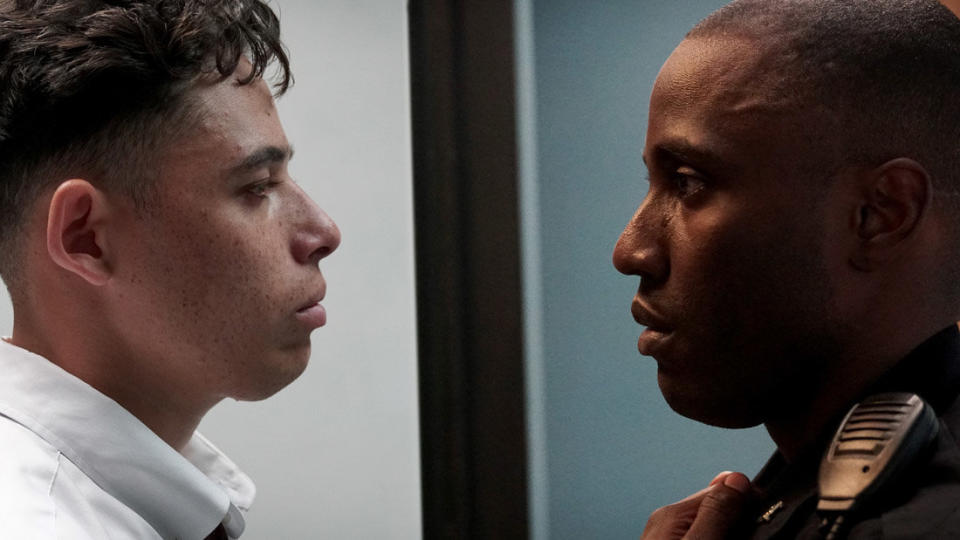
Featuring heart-wrenching turns by Anthony Ramos, John David Washington and Kelvin Harrison Jr., the film focuses on the story of three men -- a devoted father who inadvertently films the incident on his iPhone, a black policeman balancing work and home life, and a young baseball prodigy who risks his future for the good of his community -- as they grapple with an all-too-common tragedy on the streets of New York. -- LB
"Skate Kitchen"
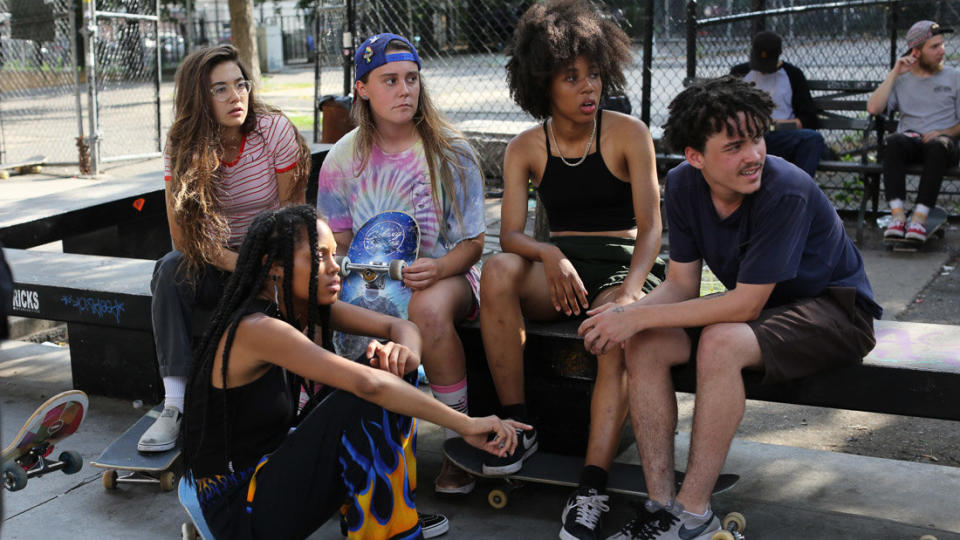
Director Crystal Moselle, who made the 2015 documentary "The Wolfpack," said she met the group on the subway. Incorporating their real personas, she scripted a gauzy narrative about a shy newcomer (Rachelle Vinberg) who finds refuge with this very different sort of wolf pack. Invoking shades of "Kids" and "American Honey," "Skate Kitchen" is a vérité ollie full of life at its most bittersweet and its most vivacious. The plot is loose in the best sense, and the results make for a serene jaunt through the fleeting, beautiful days that will soon make these girls -- and the boys who surround them, including one played by Jaden Smith -- nostalgic for their youth. -- MJ
"Colette"
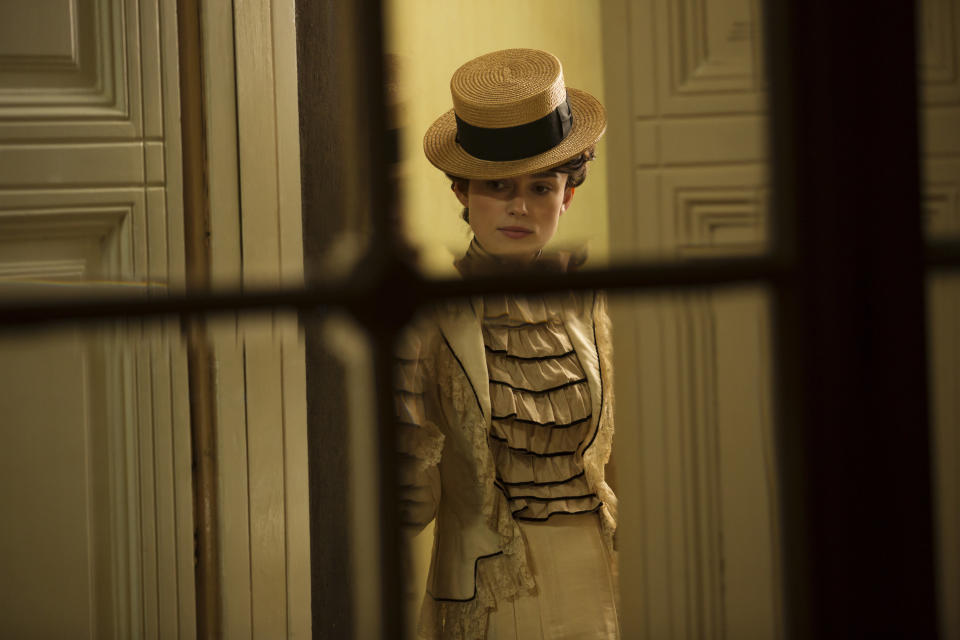
As Colette comes to terms with her own identity -- professionally and sexually -- her marriage begins to crack, leading her to discover her own unique path to success and happiness. With delectable costumes and scenic sets, "Colette" transports you to a time when women's voices were unfortunately lost but eagerly waiting to be found. -- LB
Love HuffPost? Become a founding member of HuffPost Plus today.
This article originally appeared on HuffPost.

